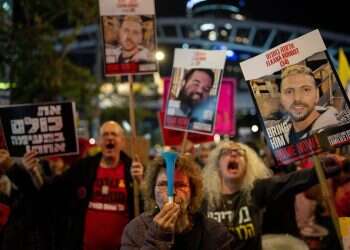During the first years of statehood, on one occasion an aide to Prime Minister David Ben-Gurion told him about some expenditure that cost 1 million Israeli pounds. A baffled Ben-Gurion thought this was an exorbitant amount, and told Finance Minister Levi Eshkol he was too scared to sign off on that. Eshkol quipped, "Young man, let me tell you how one builds a state – first you construct something, then you look for someone to pay for it."
Follow Israel Hayom on Facebook, Twitter, and Instagram
Such was the mindset that governed Israeli leaders at the time, with the economic mood always a function of just how much US Jews were willing to pay. In fact, one must recall that it was only until 30 years ago that whenever someone uttered the phrase "The Israeli economy," people would be convinced this was the start of a joke. Ever since, our economy has taken off and reached heights that Eshkol, Ben-Gurion, Menachem Begin, and others could not have imagined even in their wildest dreams. No longer is Israel concerned about how to build a small cabin but is focused on skyscrapers; no longer is it concerned about a possible water shortage. The small country has been able to sustain a population that is threefold what the British or the Zionists thought was ever possible.
In 1967, a senior columnist in The New York Times said, "It's a mystery how this country, which has constant threats from the outside, has never seen a popular military leader take over." In other words, he was baffled by how Israel had been able to keep its democratic system of government. The answer is that along with the economic miracle, our complex and flawed existence as a free society is also a miracle. Israelis believe this unlikely success story is built into our society and can be attributed to our human capital.
In 1961, a new city was built: Ashdod. Immigrants from Ashdod gave life to the sand dunes, making it the successor to Tel Aviv, whose early settlers also enjoyed playing in the golden sands. At first, only some 5,000 people lived in Ashdod, and the dream was to have it reach 150,000 and build a port! Today it has 250,000 residents and it indeed has a port. The multicultural city is thriving.
But Israel as a society can learn not just from the Ashdod success story but also from the "successful failure" of the kibbutzim. Our socialist forefathers would have their jaws drop if they could see how those communal settlements have transformed. The young men and women of the kibbutzim put their lives on the line. I always think about my brother and his friends who fought in our unofficial "Second War of Independence" between 1967 and 1973.
If they come back to life and sit at the table, they would not recognize the kibbutz they never returned to. It has become a village twice the size, much more developed and sophisticated than the socialist commune that it began as. Likewise, Israel has been changing right beneath our feet, like a Negev stream during a rainy winter. Israel is much stronger than all of our shortcomings. It should be a cause for celebration; there is much to celebrate.
Subscribe to Israel Hayom's daily newsletter and never miss our top stories!




